
Sharing knowledge is not about giving people something or getting something from them. That is only valid for information sharing. Sharing knowledge occurs when people are genuinely interested in helping one another develop new capacities for action; it is about creating learning processes. | Peter Senge Continue reading Sharing Knowledge Is Not the Same as Information Sharing Peter Senge

Listening to Learn | Jennifer Garvey Berger People: Jennifer Garvey BergerJennifer Garvey Berger Developmental coach and authorBooks: Jennifer Garvey BergerJennifer Garvey Berger Developmental coach and authorListening to Learn Jennifer Garvey Berger (2017)Making Sense of Complexity – an Introduction to Cynefin Jennifer Garvey Berger (2017)Safe-to-fail Experiments Jennifer Garvey Berger (2018)Videos: Jennifer Garvey BergerListening to Learn Jennifer … Continue reading Listening to Learn Jennifer Garvey Berger (2017)

When I was teaching at Columbia University, techno-prophet Marshall McLuhan came down from Toronto to lecture there. He talked about how the linear pattern of information resulting from print technology limited the thought patterns of people who learned from printed books. Word follows word, line follows line, paragraph follows paragraph, page … | Mel Alexenberg reporting the words of Marshall McLuhan Continue reading The Book Medium Is a Stronger Message Than Its Content Marshall McLuhan

Conversation is the single greatest learning tool in your organization — more important than computers or sophisticated research. As a society, we know the art of small talk; we can talk about how the Red Sox are doing or where we went on vacation. But when we face contentious issues — when there are feelings about rights, or when two worthwhile … | William O’Brien Continue reading Conversation Is the Single Greatest Learning Tool in Your Organization William O’Brien


Introduction The objective is simple: “Better decision-making.” The only issue is that there are so many different views over what we mean by “better.” At the core of all decision-making is the need to balance Power with Responsibility, as the vehicle for resolving the “better” question. This article explores why that is so difficult? It … Continue reading The Issues at the Core of Ethical Decision-making and Leadership Bruce Lloyd (2009)

Advice is unfriendly to learning, especially when it is sought. Most of the time when people seek advice, they just want to be heard. Advice at best stops the conversation, definitely inhibits learning, and at worst claims dominance. | Peter Block Continue reading Don’t Give Advice Peter Block

In these meetings individuals exchange their data, conclusions, reasoning and questions with others. Although the cognitive benefits to the receiver of such an exchange are apparent, there is evidence that it is the speaker who makes the greatest cognitive gains from the exchange. Individuals organize information differently if they are going to … | David W. Johnson and Roger T. Johnson Continue reading It Is in Speaking That We Organize Cognitively What We Know David W. Johnson and Roger T. Johnson

In any kind of organization, learning has become a vital part of the growth and development process, but it only produces effective results if it is pursued strategically and embedded deeply into the culture of the workplace. In recent years, there has been a growing consensus that, for many organizations, learning is their only sustainable … Continue reading The Learning-driven Business: How to Develop an Organizational Learning Ecosystem Alaa Garad and Jeff Gold (2021)

The Army’s After Action Review (AAR) is arguably one of the most successful organizational learning methods yet devised. Yet, most every corporate effort to graft this truly innovative practice into their culture has failed because, again and again, people reduce the living practice of AAR’s to a sterile technique. | Peter Senge Continue reading The After-action Review Is Arguably One of the Most Successful Organizational Learning Methods Peter Senge

Abstract The 21st century learning requires huge transformation and shift in local educational delivery system and practice to cater expectations of the nations. It seems to be relevant to solve problem like soft skills of the students in which it was highlighted by the Malaysian Ministry of Education in 2015. In general, many employers claim … Continue reading Knowledge Café: New Approach in Teaching and Learning at Higher Learning Institutions Noryana Ahmad Khusaini, Mohd Shamsul Daud, Seri Intan Idayu Shahrul Asari, Nordibradini Selamat

Our traditional view of leaders — as special people who set the direction, make the key decisions, and energize the troops — is deeply rooted in an individualistic and non-systemic world-view. In a learning organization, the leaders’ role differs dramatically from that of the charismatic decision maker. Leaders are designers, teachers, and … | Peter Senge Continue reading The Leader’s New Work Peter Senge

Learning is all about connections, and through our connections with unique people we are able to gain a true understanding of the world around us. | Peter Senge Continue reading Learning Is All About Connections Peter Senge

Peter Senge is an American systems scientist. He is a senior lecturer at the MIT Sloan School of Management and the founder of the Society for Organizational Learning. Systems thinking for a better world | Peter Senge WikipediaPeter SengeYouTubePeter SengeGooglePeter SengePosts: Peter SengeImproving Performance with After-action Reviews Building a culture of improvementBooks: Peter SengeImproving Performance … Continue reading Peter Senge Systems scientist

AustraliaAustriaBrazilCanadaChinaCzech RepublicEgyptFranceGermanyGlobalIndiaItalyJapanMexicoNetherlandsPolandSaudia ArabiaSingaporeSpainTurkeyUAEUnited KingdomUnited States As an Amazon Associate, I earn a small commission when you purchase a book via this site. Posts where this book is embedded Consider Prejudice Peter Senge The Fable of the Bees: or Private Vices, Publick Benefits The Four Horsemen: the Discussion That Sparked an Atheist Revolution Tags: learning … Continue reading The Fifth Discipline: the Art & Practice of the Learning Organization by Peter Senge (2006)

Conversation is the most powerful learning technology ever invented. Conversations carry news, create meaning, foster cooperation, and spark innovation. Encouraging open, honest conversation through workspace design, setting ground rules for conversing productively, and baking conversation into the corporate culture spread intellectual capital, … | Jay Cross Continue reading Conversation Is the Most Powerful Learning Technology Ever Invented Jay Cross

Radical in its implications, this original and important work may change forever the views we hold about the nature of learning. In The Power of Mindful Learning, Ellen Langer uses her innovative theory of mindfulness, introduced in her influential earlier book, to dramatically enhance the way we learn. Our learning is hobbled by certain antiquated … Continue reading The Power of Mindful Learning by Ellen J. Langer
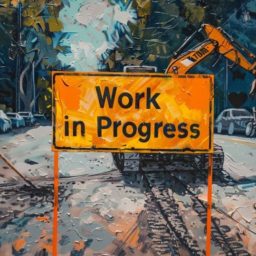
Collective Sense-making The Power of Peer Instruction Close Pop-up all posts in this chapter What’s the Vibe? Please be patient as this may take up to a minute to load… Close Conversational learning is a form of learning that takes place through meaningful conversations and interactions between individuals. It emphasizes the importance of dialogue, exchange … Continue reading Introduction: Conversational Learning Unleashing knowledge

In this book, Learning Together and Alone, the authors integrate cooperative learning with competitive and individualistic learning by providing guidelines for managing critical issues such as teaching social skills, assessing competencies and involvement, and resolving conflict among group members. Each type of learning is clearly defined; the advantages and disadvantages of each are covered, and … Continue reading Learning Together and Alone: Cooperative, Competitive, and Individualistic Learning by David W. Johnson, Roger T. Johnson

AustraliaAustriaBrazilCanadaChinaCzech RepublicEgyptFranceGermanyGlobalIndiaItalyJapanMexicoNetherlandsPolandSaudia ArabiaSingaporeSpainTurkeyUAEUnited KingdomUnited States As an Amazon Associate, I earn a small commission when you purchase a book via this site. Connections: New Ways of Working in the Networked Organization Conversation: A History of a Declining Art Tags: conversation (187) | learning (38)Google Web Search Photo Credits: Midjourney (Public Domain)This page is part … Continue reading Content-area Conversations: How to Plan Discussion-based Lessons for Diverse Language Learners by Douglas Fisher, Nancy Frey, Carol Rothenberg

Abstract Background Those attempting to implement changes in health care settings often find that intervention efforts do not progress as expected. Unexpected outcomes are often attributed to variation and/or error in implementation processes. We argue that some unanticipated variation in intervention outcomes arises because unexpected conversations emerge during intervention attempts. The purpose of this paper … Continue reading The Role of Conversation in Health Care Interventions Enabling sensemaking and learning

Introduction: Conversational Learning The Power of Peer Learning Close Pop-up all posts in this chapter What’s the Vibe? Please be patient as this may take up to a minute to load… Close Traditional lectures often fail to engage students in real understanding. People need more than just information—they need to make sense of it through … Continue reading The Power of Peer Instruction Why explaining ideas to others leads to deeper learning
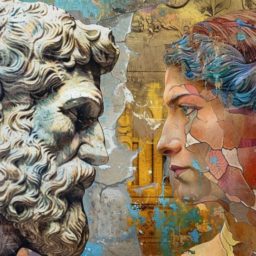
How Could We Be Wrong? Conclusion: Two Pillars of Truth Close Pop-up all posts in this chapter What’s the Vibe? Please be patient as this may take up to a minute to load… Close The pursuit of truth is a fundamental human endeavor. However, arriving at the truth can be challenging, as our beliefs and … Continue reading The Two Pillars of Truth How the scientific method and Socratic elenchus underpin civilization
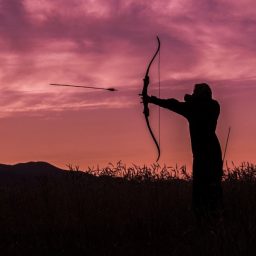
Influential Power ** Consensus ** Close Pop-up all posts in this chapter What’s the Vibe? Please be patient as this may take up to a minute to load… Close Measures Before you measure anything, you should carefully determine your objectives. What are you trying to achieve, and what is the purpose of making the measurements? … Continue reading Measures, Targets, Rewards and Punishments When a measure becomes a target, it ceases to be a good measure

The Power of Peer Instruction Peer Instruction Vs. Peer Learning Close Pop-up all posts in this chapter What’s the Vibe? Please be patient as this may take up to a minute to load… Close People learn best when they share ideas and experiences. Traditional learning often focuses too much on passive instruction, missing the value … Continue reading The Power of Peer Learning Why learning from each other leads to deeper understanding and better problem-solving

Turn-taking in Conversation Our Most Powerful Technology Is Conversation Close Pop-up all posts in this chapter What’s the Vibe? Please be patient as this may take up to a minute to load… Close Pask’s Conversation Theory, developed by British cybernetician Gordon Pask in the 1970s, is a conceptual and theoretical framework that explores how learning … Continue reading Conversation Theory ** Gordon Pask
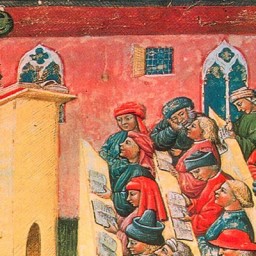
Dialogic Organization Development The Power of Team Huddles Close Pop-up all posts in this chapter What’s the Vibe? Please be patient as this may take up to a minute to load… Close Flipped teaching reverses, or “flips”, traditional in-class lectures and homework. Students watch the teacher’s prerecorded lecture at home, and in-class time is used … Continue reading Flipped Teaching Speech is a bad medium for communicating information – so watch lectures at home

The Power of Peer Learning Sharing Knowledge Through Conversation Close Pop-up all posts in this chapter What’s the Vibe? Please be patient as this may take up to a minute to load… Close People learn differently, and how they engage with knowledge shapes their understanding. Traditional teaching methods often focus on delivering information rather than … Continue reading Peer Instruction Vs. Peer Learning Rethinking how we learn and lead
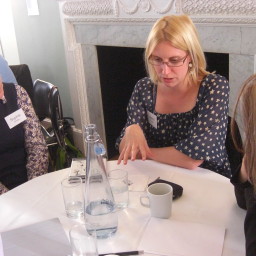
Hong Kong MTR Coffee Evenings and Liaison Trains Al Jazeera Cafe Close Pop-up all posts in this chapter What’s the Vibe? Please be patient as this may take up to a minute to load… Close Background At one time, the Norwegian oil company Statoil (now Equinor) innovatively employed the Knowledge Café in their management training. … Continue reading Equinor Management Training Cafés You learn when you converse

Don’t give advice: At first thought, the idea that providing personal advice is a bad thing, especially when sought, seems rather strange. It may seem reasonable not to offer advice when it is not requested. But when it is sought? Continue reading Don’t Give Advice Especially when it is sought
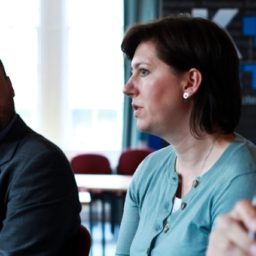
Sharing Knowledge Through Conversation Collective Sense-making Close Pop-up all posts in this chapter What’s the Vibe? Please be patient as this may take up to a minute to load… Close Learn by talking: We learn when we talk. You might think that you don’t learn when talking but learn when listening. It is not as … Continue reading Learn by Talking When speaking we organize cognitively what we know















